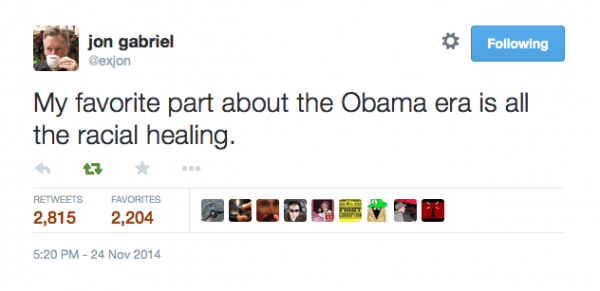FLASHBACK: Politicians benefit from American tribal warfare.
“What if I told you,” asks a Matrix-themed photo meme circulating on Facebook, “that you can be against cops murdering citizens and citizens murdering cops at the same time?”
Judging by the past few weeks, this really is a Matrix-level revelation. We have Americans protesting because of police shootings, and we have police turning their backs on New York City Mayor Bill de Blasio over lack of support after two officers were assassinated by Ismaaiyl Brinsley, a gunman who said he was seeking revenge for the choking death of cigarette-tax evader Eric Garner.
And, as blogger Eric Raymond notes, the response has been divided: “Because humans are excessively tribal, it’s difficult now to call for justice against Eric Garner’s murderers without being lumped in with the ‘wrong side.’ Nor will Garner’s partisans, on the whole, have any truck with people who aren’t interested in poisonously racializing the circumstances of his death.”
This is a tragedy, but not a surprise. Tribalism is the default state of humanity: The tendency to defend our own tribe even when we think it’s wrong, and to attack other tribes even when they’re right. Societies that temper those tribal tendencies do much better. But there is much opportunity for political empire-building in tribalism, and if the benefits of stoking tribal fires exceed the costs, then expect political actors to pour gasoline on even the smallest spark.
That’s pretty much what has happened. In America, we have both a police culture that is too quick to escalate force, and an aggressive victim culture, embodied by the loathsome Al Sharpton, that seeks to portray every police use of force, at least against members of the wrong racial and ethnic groups, as excessive.
A healthy society would stigmatize, marginalize and shun the tribalizers.
We do not live in a healthy society.
UPDATE: And this remains evergreen, alas:
(Bumped from last night.)

